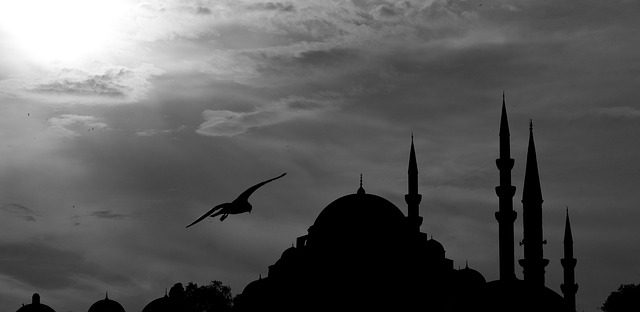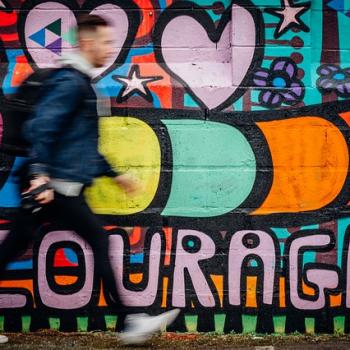 This is day 23 of the 2018 #30Days30Writers Ramadan series.
This is day 23 of the 2018 #30Days30Writers Ramadan series.
Ramadan, as my husband says, is a time to “get right.” It is when we are meant to turn down the din of the world, quiet the chatter in our minds, listen to our heartbeats. Much is made of our fasting, the abstention of all food and drink from sunrise to sunset. Yet for me, through my 15 years of being Muslim, I find that the greatest challenge of Ramadan is not hunger or thirst, but in simply being still.
By stillness, I do not only mean a state of being physically still, as in meditation, or in sitting quietly — though those certainly count — but the sensation of internal stillness, which for me only arrives through the acceptance of my body and soul as beholden to this sacred month’s time. Stillness acts as a prerequisite to so many of the acts we undertake this month: extensive prayer, reading Quran, abstaining from anger. When I am rushing about, overextending, worrying, I find these undertakings difficult, if not impossible.
Stillness does not come easy for me. I am an academic, and just before the start of Ramadan this year, I received tenure. For those unfamiliar with the academic profession, tenure is the carrot dangled before you from the moment you accept your job as a professor.
To achieve it, you must meet certain benchmarks set by your institution around service, teaching and research. At Rutgers, where I work, this means serving on umpteen committees, teaching a full load of courses, and publishing extensively on your research in the form of articles and a full-length book. To not get tenure means you lose your job.
So, for the past six years I’ve chased the carrot. I wrote a book, headed a campus-wide group to support women-of-color-faculty, served on numerous personnel, hiring and diversity committees, hosted conferences, mentored undergraduate and graduate students, and taught courses on social justice, race and ethnicity, gender and feminism, and Islam in/and America.
I also have strong political commitments. I came to Islam through the teachings of Malcolm X and understand being Muslim as enjoining an unwavering commitment to human liberation. Writing on and teaching topics of race, gender, justice and American Islam over the course of the past few years has been hard. So many of my students are frightened, demoralized, angry. They come in my office to vent and cry. And, I must convince them that this knowledge is for the long haul, that justice is not a protest or a hashtag, but a journey, which oftentimes may be arduous and painful but also filled with revelation and joy.
In all of this, stillness has been in short supply. Which is why, in some ways, this Ramadan has been particularly sweet. The fate of my professional future is no longer hanging over my head. Indeed, I’ve found the fast easier, my prayer more focused, and despite having two tween-age girls in the house, I have been relatively (though not completely) successful in controlling my temper.
This stillness, however, has also brought unexpected consequences, in particular about coming to terms with the effects of its absence over time. In growing older, I’ve become aware that energy directed towards one thing must be drawn from somewhere else, i.e. more work time means less time with family and friends; more time spent thinking about work, worrying about tenure, means less time nurturing our partners, enjoying our children, cultivating our relationship with Allah.
Though I have tried — and thought I had been relatively successful — at doing all those things, this month’s stillness teaches me that to be present everywhere simply was not possible. So, I am seeing the relationships untended to, the conflicts unresolved, and so many lessons still unlearned. As I succumb to this Ramadan’s rhythms, I have been taking stock of the toll taken by the constant movement of my body and mind these last six years while pursuing tenure, so I may “dive into the wreck” — to borrow the title of Adrienne Rich’s famous poem — of what remains.
In moving forward beyond tenure, it is becoming clear to me that the pursuit of stillness — so key to drawing closer to the Divine — must be a central objective in my daily life, an aspiration to simply be where I am in time.
As we move through the last ten days of Ramadan, I’ve also come to realize that stillness is not a solitary act. For the past 13 years, my husband and I have risen together for suhoor, the pre-dawn meal.
Whoever is wakened by the alarm first nudges the other, someone clicks on a light. Once downstairs, I crack eggs in a pan, add cheese, a handful of spinach. He puts on the water, grinds the coffee beans (no, we don’t give up coffee for Ramadan), and I pop in the toast. I slice watermelon, or whatever fruit is in season. He grabs the vitamins; I pour orange juice. Utensils and napkins somehow appear on the table. Between the both of us, we hardly say a word. When we finish eating, we chat a bit, about what we are doing today, the kids, anything, everything.
Time to pray fajr.












